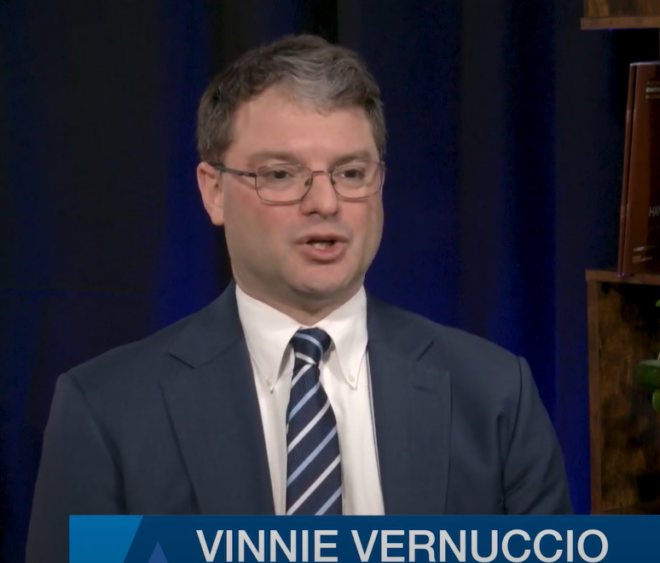Posts tagged Independent Contractor Rule
Commentary: He Laughed Out Loud
October 2, 2025 // The Labor Department is part of the Murphy administration. The governor has the power to rescind this proposal, to protect the incomes and careers of New Jersey’s estimated 1.7 million independent contractors. He’s choosing not to do it, while laughing about it.
Commentary: ‘The Safety of Our Children’
September 11, 2025 // Here’s an interesting perspective from within the estimated 8,300 public comments that the New Jersey Department of Labor & Workforce Development uploaded last week, with regard to its proposed independent-contractor rule. Denise Lanza, co-chair of the New Jersey Recreation and Park Association Public Affairs Committee, filed a comment that explains how the rule-making would make it a challenge for the statewide parks and recreation community to hire people like youth league umpires and coaches, or yoga instructors for senior citizens at community centers.
Commentary Kim Kavin: Worse than California’s AB5
May 6, 2025 // They tried, and failed, to do just that back in 2019-20 with legislation that mirrored California’s disastrous freelance-busting ABC Test law. Independent contractors from all across New Jersey cried foul. Our elected officials ultimately decided this policy was a bad idea for the Garden State. Trenton bureaucrats are now moving to impose this ABC Test interpretation on us all anyway, through rule-making, in their final months of having power before this fall’s election.

Kim Kavin: Intent to Reconsider
April 8, 2025 // The federal government has indicated in court that it may rescind the Biden-Harris administration’s independent-contractor rule and undertake the process of new rule-making. Yesterday, the U.S. Labor Department filed a status report in one of several lawsuits against the Biden-Harris administration over its independent contractor rule. This status report was filed with regard to the Frisard case, whose plaintiff is represented by Liberty Justice Center and the Pelican Institute.
California: The Lost Report
April 1, 2025 // On December 3, 2020, almost a year after California’s freelance-busting law, Assembly Bill 5, went into effect, the California Advisory Committee to the U.S. Commission on Civil Rights was created to study AB5’s civil rights implications. The committee’s officially designated term ended December 4, 2024. There were hours and hours of testimony, much of it recorded on video. But the committee never issued a report based on all this testimony its members heard. Members of the committee say they were told that if they issued individual statements in the absence of any committee report, they would be failing to comply with the Federal Advisory Committee Act and the rules of the U.S. Commission on Civil Rights.

Independent Contracting in 2025
January 8, 2025 // Independent contractors forgo workplace benefits that employees receive. Portable benefits are a way to give them access to benefits untethered from employment with one employer.

Interview: Independent Contractors and Union Reforms, How @VinnieVernuccio Champions Worker Choice
September 12, 2024 // Unions are stuck in this turn of the last century industrial revolution, a one-size-fits-all adversarial business model that most workers today don't want. I do see a place for unions if they embrace a voluntary business model and become like professional service organizations. Unfortunately, they're not there. If you're under a union contract, you're stuck with the wages, the benefits, the vacations, [and] the hours they negotiate for you. It's actually impossible for the employer to unilaterally say, “you're doing a great job, I'm going to give you a raise,” or “I'm going to give you a bonus,” or, “hey, you want more vacation for a little less money?”
Opinion: Congress Doesn’t Care About Freelancers — and It May Cost Them at the Polls
August 11, 2024 // Supporters of reclassification do not understand how essential independent contracting is to our livelihoods. This was evident in 2020 in the fight against California’s AB5—a law implementing a restrictive ABC test that reclassified many independent contractors as employees and inspired the DOL’s new rule. One elected state official claimed the independent status being stripped from us was just “taking away our lollipops.” Instead, AB5 hollowed out self-employment, pushed up unemployment, and destroyed many livelihoods in the process. While California is not in play in this election, Virginia is. Independent professionals are aware of what they will lose if similar policies are nationalized.
Biden Pushes Early Renomination of Failed NLRB Chair in Effort to Deny Possible Trump Administration Control over Labor Board
June 12, 2024 // The NLRB is composed of five members, usually three of whom are from the president’s political party and two from the opposing party. The Board uses both adjudication and rulemaking to put forward its interpretations of the NLRA, but it needs a quorum of three members to act. Currently, there are four Board members (see Board composition here). Three of the members are Democrats, while one is a Republican. The other Republican seat has been vacant since December of 2022, because President Biden chose not to nominate anyone to that vacancy for a year and a half. While agency vacancies and delays on nominations are nothing new in Washington, this one is notable and shows an unusual partisanship and dishonesty.

Fair pay for Uber drivers belongs on ballot, Massachusetts court suggests
May 7, 2024 // A group supported by Uber, Lyft, DoorDash and Instacart is promoting ballot initiatives that would establish that the companies’ drivers are contractors who are exempt from the state’s employment laws — which means that they aren’t entitled to minimum wages, overtime, paid sick leave, unemployment insurance or health benefits. Meanwhile, an initiative promoted by drivers would allow them to form a union and engage in collective bargaining. Both sides claim the other is trying to confuse voters and “logrolling” by combining unrelated provisions into one petition. The state attorney general’s office approved all the initiatives and found itself in the odd position of defending both sides in court.
